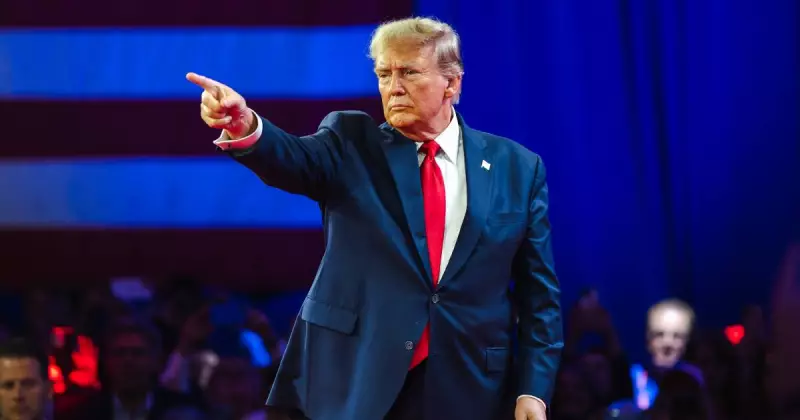
Despite the bold claims and headline-grabbing declarations, President Donald Trump finds himself navigating increasingly turbulent political waters as his approval ratings hit concerning lows and key voter bases show signs of erosion.
Poll Numbers Tell Concerning Story
Recent polling data reveals a significant decline in public support for the president. Trump's approval rating has dropped to just 38 percent, marking his lowest point during this term and a substantial fall from the 47 percent approval he enjoyed when first taking office.
With the crucial US midterm elections scheduled for November 3, 2026, the timing couldn't be more critical for the embattled leader. All 435 House of Representatives seats, 33 Senate positions, and 36 state governorships will be contested, potentially reshaping the American political landscape.
Epstein Files Handling Creates Backlash
The president's management of the Jeffrey Epstein case files has emerged as a significant liability. Trump's initial resistance to releasing the documents created a rare moment of opposition to his core supporters and congressional allies.
According to Reuters/Ipsos polling, only 20 percent of Americans approve of Trump's handling of the Epstein case. More damagingly, 60 percent of Republicans believe the government is concealing information about the matter.
His eventual decision to involve Congress in what could have been handled through executive action was widely perceived as a forced concession rather than a strategic victory. The dismissal of critics as traitors further alienated segments of his support base.
Economic Pressures Weigh Heavily
Beyond the political controversies, the persistent cost of living crisis represents Trump's most vulnerable flank. This issue directly impacts American households every time they visit supermarkets or pay bills.
The polling data underscores the severity of this challenge, with only 26 percent of Americans approving of Trump's management of everyday expenses. This economic pressure point affects voters across the political spectrum and threatens to undermine his remaining support.
Political analysts suggest that if Trump cannot reverse these trends, he risks becoming a lame duck president forced to govern primarily through executive orders rather than legislative cooperation.
The combination of political missteps and economic hardship has created a perfect storm for the administration, with the upcoming midterm elections poised to serve as a crucial referendum on Trump's leadership and policy direction.





